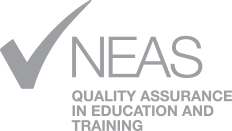We are really looking forward to greeting you in person in just 10 weeks at Aerial at UTS Function Centre. This year’s new-look NEAS Management Conference is compact, yet perfectly formed, with a limited number of seats and a program that promises to stimulate and excite thought leadership.
Reflective of the theme: Quality Revolution: Rethinking, Reshaping, and Redefining Excellence in ELT, are two areas that are currently undergoing transformation. These are: integration of blended learning as well as a renewed focus on communicative competence.
Oxford, R (2018), underscores the benefits of integrating face-to-face instruction with online learning components. “Blended learning offers the best of both worlds,” she explains. “It combines the guidance of a teacher with the flexibility and accessibility of online resources, catering to diverse learning preferences and maximising student engagement.” By embracing blended learning models, ELT programs can create dynamic and adaptive learning experiences that empower learners to take ownership of their language learning journey.
In response to the evolving needs of global and intercultural communication, ELT is placing a greater emphasis on developing communicative competence among learners, with task-based activities, role-plays, and authentic communication tasks increasingly integrated into ELT curricula. In addition to this, intercultural communication is also an important part of fostering cultural competence and global citizenship in English language education. McKay (2019) asserts that “language and culture are inseparable” and that “by promoting intercultural awareness and understanding, ELT programs prepare learners to thrive in diverse multicultural environments”, thus enriching the learning experience and equipping learners with the skills needed to navigate a rapidly globalising world.
References:
McKay, S. L. (2019). Intercultural Communication in the Global Classroom: Fostering Understanding and Collaboration. Oxford University Press.
Oxford, R. (2018). Blended Learning Models in Language Education: Maximizing Engagement and Flexibility. Cambridge University Press.
February 2024
